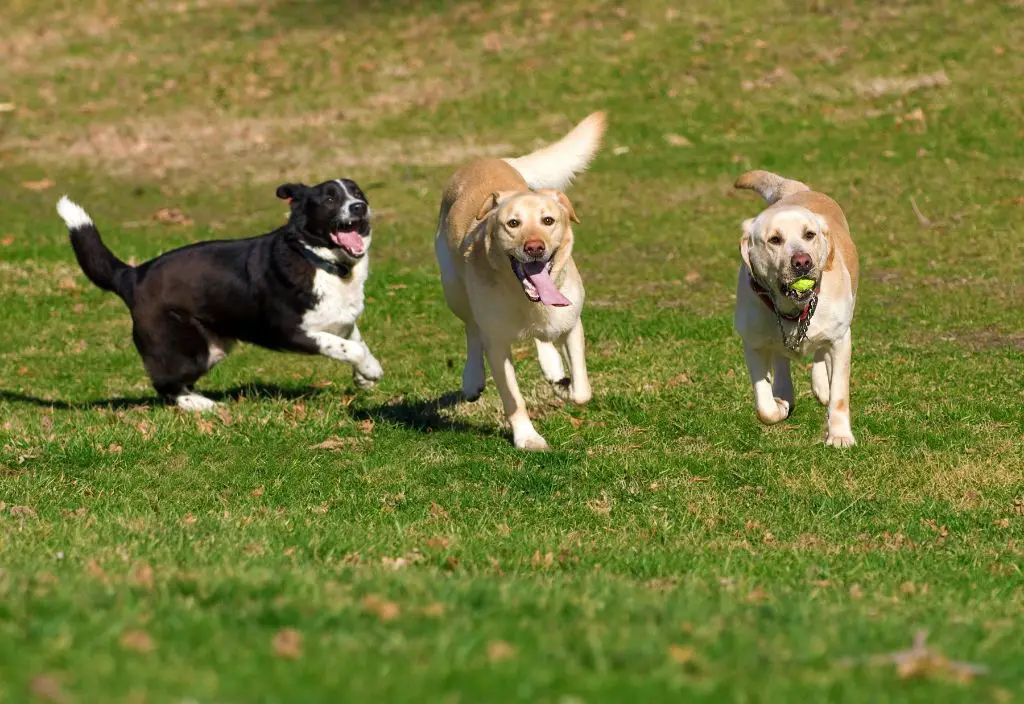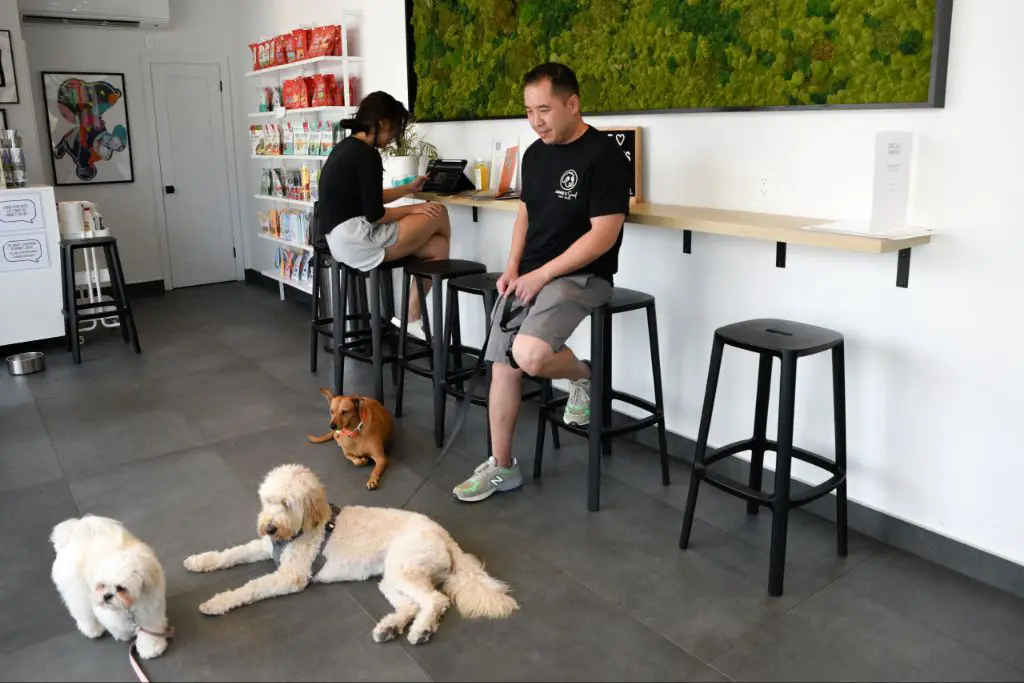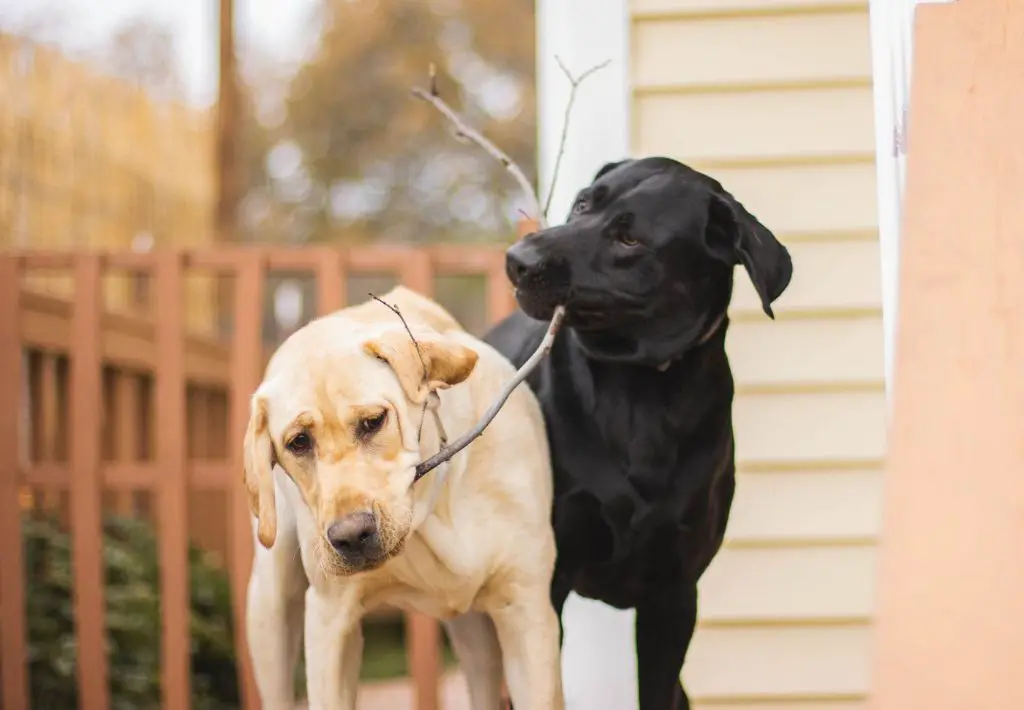Introduction
Being called a “dog” by a friend can be confusing and even upsetting. However, before taking offense, it’s important to understand the context and meaning behind this term. While the word “dog” carries negative connotations in some circumstances, it can also be used in a friendly or affectionate manner among close companions. This article will explore the various interpretations of this label, providing insights into your friend’s intent and how best to respond.
Possible Meanings
Being called a “dog” can have different meanings depending on the context and tone it’s said in. Here are some common meanings:
Positive meanings:
- Loyal – Dogs are known for being loyal pets and friends. Calling someone a “dog” may be a way to imply they are a loyal or trustworthy person.
- Playful – Dogs love to play and have fun. Calling someone a “dog” could suggest they are playful, energetic, and fun-loving.
- Cute or attractive – Some people may use “dog” as a slang term when they find someone cute or attractive, especially in a playful or flirtatious context.

Negative meanings:
- Ugly – Calling a woman a “dog” can imply she is ugly or unappealing.
- Unsavory behavior – Calling someone a “dog” can suggest they did something morally questionable or unsavory, like cheating.
- Mean or aggressive – Dogs sometimes bark, growl, or bite. Calling someone a “dog” may compare them to aggressive canine behavior.
The meaning can vary based on the exact phrase used, the context, relationship between people, and tone of voice.
Negative Connotations
Being called a “dog” can have some hurtful implications. In many cultures, dogs are seen as dirty, unhygienic animals that rummage through trash. Therefore, the term “dog” may imply that someone lacks manners or desirable social behavior. There’s also the notion that dogs are lower life forms, so the insult reduces someone’s status to that of an animal (Is calling someone ‘Dog’ an insult or a compliment in English?). In some contexts, “dog” suggests disloyalty, betrayal, or cowardice, painting the target as untrustworthy (Does anyone know why calling someone a dog is an insult?).
Overall, the term is often meant to devalue a person’s worth and cast shame. It’s no wonder being called a “dog” stings and makes one feel small. The insult attacks fundamental human needs for dignity, belonging, and self-esteem.
Consider Context
It’s important to consider the context when someone calls you a “dog.” The tone they use, your relationship with that person, and the situation you were in all give clues to their intention. Sometimes “dog” is used as an insult meant to demean someone, while other times it’s a harmless nickname between friends conveying camaraderie. Analyzing the context helps discern if “dog” was used in a derogatory way or as a term of endearment.
Reflect on the nature of your relationship – is this someone you’re very close with who may use “dog” in a friendly manner? Or is it an antagonistic relationship where they’re more likely to use the word in a belittling way? Also, pay attention to the situation and whether tensions were high beforehand. Heated conflicts can cause someone to lash out with hurtful name-calling.
Most importantly, trust your gut reaction. If your first instinct was that they used “dog” in an offensive way, there may be some truth to that. But don’t jump to conclusions without first calmly analyzing the context for clues. Considering tone, relationship status, and situational factors will help you discern their true intention when calling you a “dog.”
Ask Your Friend
The best way to understand why your friend called you a dog is to have an open and honest conversation with them. Assuming positive intent, they likely didn’t mean it in a harmful way. However, you won’t know for sure until you ask.
Find a private moment to speak with your friend one-on-one. Use a calm, curious tone and avoid accusing them of anything. You could say, “The other day when you called me a dog, I wasn’t sure how to take it. What did you mean by that?” Let them explain without interrupting. Listen carefully to understand their perspective.

If it was meant positively, great! You can tell them you appreciate the intention, but in the future could they use a different term of endearment. If it was meant negatively, don’t get defensive. Politely share how it made you feel and ask them not to use language like that again. With good communication, you can prevent hurt feelings.
Speaking directly with your friend is better than making assumptions or asking others to interpret. Maintaining open and honest dialogue will only strengthen your friendship in the long run.
Reflect On Your Actions
It’s worth considering whether your own behavior may have prompted your friend’s comment. Reflect honestly on how you’ve been acting lately. According to an expert, sharing your life with a distressed companion can be stressful, so self-awareness is key. Have there been situations where you’ve acted out of character or lost your temper? Think back on recent interactions with your friend – were there times you didn’t listen well or got impatient? Consider whether fear or stress could be impacting your mood or reactions. Look within first before feeling hurt or offended by your friend’s words. Being called a “dog” may simply indicate that your friend thinks you need reminders to stay calm and focused. If that resonates at all, take it as an opportunity for personal growth.
Don’t Overthink It
Sometimes a minor comment shouldn’t be over-analyzed. If a friend calls you a “dog” in passing, it’s often not meant to be interpreted literally or as an insult. According to one Reddit thread, the term is sometimes used casually or jokingly between friends in certain contexts.
Rather than assuming the worst, consider the possibility your friend wasn’t seriously comparing you to a canine. Focusing too much on an offhand remark can lead to unnecessary stress and conflict. As discussed in this article on overthinking, it’s important not to get caught up in repetitive negative thought patterns over minor issues.
If being called a “dog” truly bothered you, have an open discussion with your friend to understand their intention. But avoid spiraling into overanalysis of a possibly innocent comment. Keep perspective and don’t lose sleep over small matters.
Focus On Your Positive Qualities
Being called a name like “dog” can make you doubt yourself and your value. However, it’s important not to get hung up on a single word. Instead, remind yourself of all your positive qualities.

Make a list of things you admire about yourself, whether it’s your kindness, intelligence, sense of humor, creativity, or anything else. Reflect on your strengths, talents, and accomplishments. Remember that your self-worth isn’t defined by what others call you.
Focus on growing and using your gifts. Surround yourself with people who appreciate you. Work on building up your confidence from within. Don’t let an insult sabotage your self-image when you know just how great you are.
If you have positive traits that you want to develop further, then do so – but not because of someone else’s petty name-calling. Set goals because of your own desire for self-improvement, not to prove your worth to those who don’t see it.
You have so much more to offer than what someone’s passing comment suggests. Keep your head held high and continue being your amazing self.
When To Take Further Action
If your friend repeatedly calls you derogatory names like “dog” in a hurtful way, it may be time to reconsider the friendship. Persistent bullying or verbal abuse is unacceptable in a healthy relationship. While ending a friendship can be difficult, you have a right to be treated with respect.
Before making any permanent decisions, have an open and honest conversation with your friend. Explain how their words make you feel and ask them to stop the name-calling. If they continue to belittle you, it may be healthiest in the long run to create some distance in the relationship or cut ties completely.
True friends build each other up rather than tearing each other down. You deserve to surround yourself with people who treat you kindly. Don’t tolerate ongoing disrespect or cruelty, even from someone you care about. Prioritize your emotional well-being and don’t be afraid to walk away if attempts at reconciliation fail.

Sometimes we outgrow relationships as we change and mature over time. Other times, unacceptable behavior forces us to reevaluate connections we once cherished. Either way, you have the power to remove harmful people from your life. Trust your instincts if a friendship becomes toxic, and don’t be afraid to take a stand for yourself.
Conclusion
Being called a “dog” by a friend can be confusing and hurtful. However, don’t let it damage your self-worth or friendship without considering the context and intent. It’s best to have an open conversation to understand their reasoning and explain your perspective. Focus on your positive qualities and move forward with self-confidence. While potentially insulting, the comment may have just been an attempt at humor or affection that didn’t translate well. Ultimately, your value is defined by how you live your life and treat others, not a thoughtless name.
In summary, reflect on why your friend may have called you a dog, but don’t obsess over it. If it becomes a pattern of insults, you may need to reevaluate the friendship. However, an isolated incident may just have been a poor choice of words. Have an open and honest dialogue, without anger, to clear the air. Remain confident in yourself, and continue being the amazing person and loyal friend you are. Their words do not define your worth.
